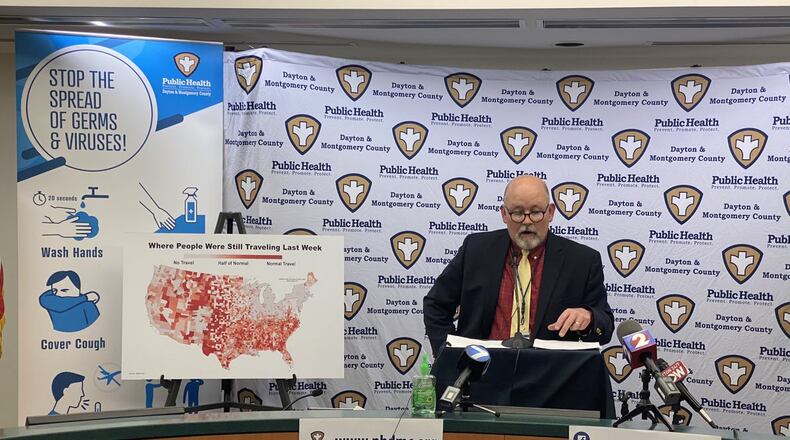The advisory initially went into effect on Nov. 19 and is not a rule or law. Instead, it’s more of a guidance from Public Health asking people to reduce their contact with those outside their households.
The Board of Health approved the resolution within days of Gov. Mike DeWine announcing a 21-day statewide curfew from 10 p.m. to 5 a.m.
The curfew, which was scheduled to expire last week, was extended through Jan. 2.
Public Health has been in communication with other health departments across the state who also passed stay at home advisories last month. Health Commissioner Jeff Cooper said all of them agreed to extend the advisory in alignment with the statewide curfew.
“It’s very much needed based on the continued spread of virus,” he said.
As of Tuesday, Montgomery County has reported 29,982 cases of coronavirus, according to the Ohio Department of Health. More than 9,500 of the county’s cases were reported in November.
Cooper also discussed Public Health’s vaccination plan.
The health department is scheduled to receive its first shipment of coronavirus vaccines next week. Cooper said Public Health is expected to get a little more than 3,000 doses.
Under Phase 1A of the state’s vaccination distribution plan, health care workers and staff and residents at congregate care facilities should receive priority.
In Montgomery County, Cooper said an estimated 50-60,000 people fall within Phase 1A.
“The message we gave to our employees today is we will very likely be doing vaccinations the rest of this year and most of 2021,” he said.
Currently, Public Health is working to develop a risk-based plan to prioritize how to administer the vaccine as shipments arrive.
The health department wants the plan to be consistent with other health departments in the region and with other urban areas across the state.
“This is going to be a multiple-month process just to get through Phase 1A,” he said.
About the Author
